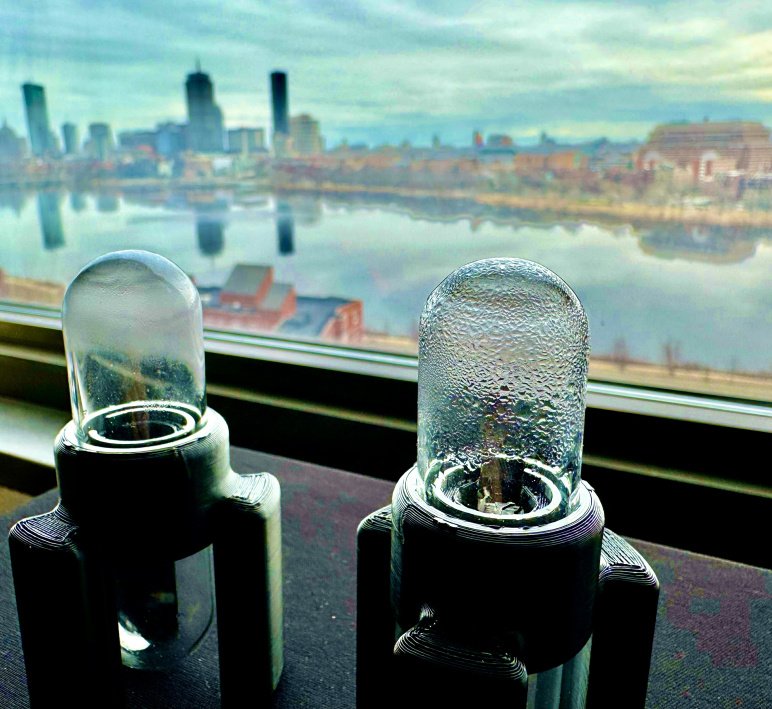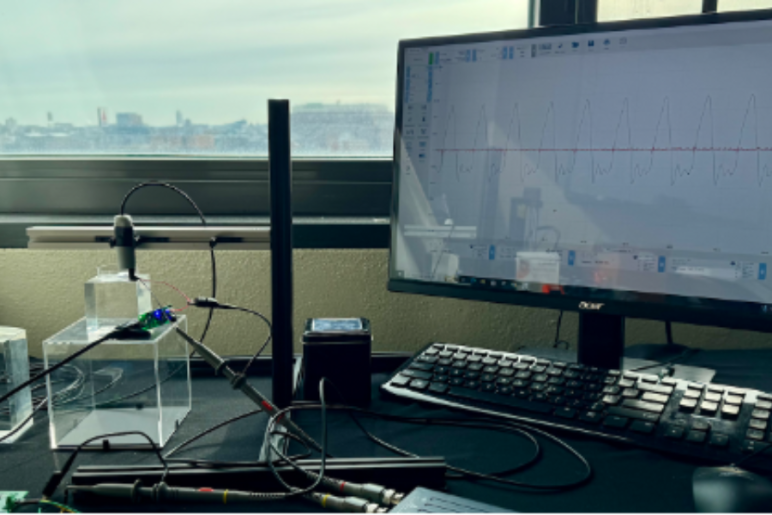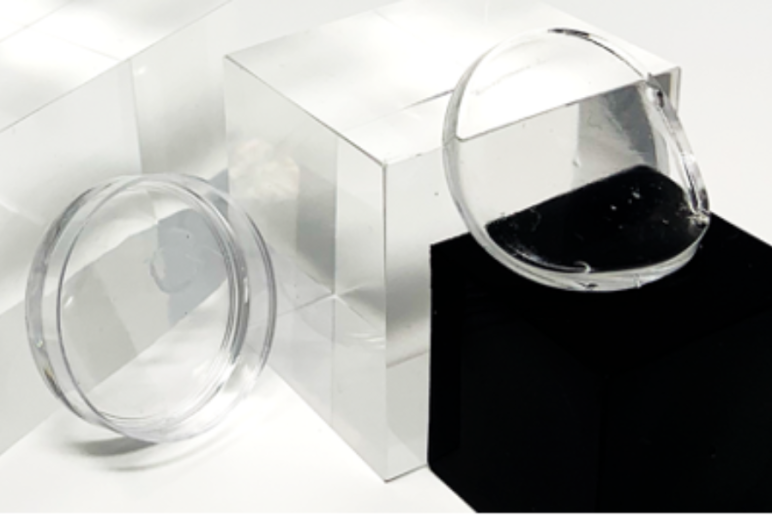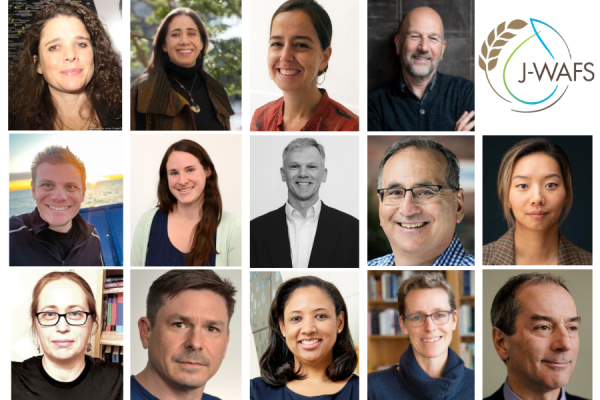Our Research High-efficiency atmospheric water harvesting enabled by vibrational actuation

Ultrasonic atmospheric water harvester prototypes tested in Cambridge, MA. Photo credit: Ikra Shuvo.

Development of an in-situ atmospheric moisture sensor to switch between harvesting and extraction stages. Photo credit: Ikra Shuvo.

Hydrogel sorbents engineered to capture moisture from atmosphere. Photo credit: Ikra Shuvo.
Principal Investigator
Svetlana Boriskina
- Principal Research Scientist
- Mechanical Engineering Department
Svetlana Boriskina, PhD, conducts multi-disciplinary research that blends photonics, opto-electronics, polymer physics, thermodynamics, and mechanics. Her Multifunctional Metamaterials (META) Research Lab develops new materials and technologies to harvest and manipulate light, heat, and acoustic waves. The lab makes smart stain-resistant fabrics that provide thermal comfort indoors and outdoors, new meta-materials that bend light in unusual ways and exhibit tunable color without any dyes or pigments, polymer-based solid-state cooling technologies to replace conventional HVACs, and optothermo-mechanical technologies to provide clean energy and fresh water to off-electrical-grid and disaster-stricken communities. Boriskina authored over 130 peer-reviewed papers, taught several award-winning courses, and received multiple patents.
Challenge:
Can we reduce the prohibitively high energy consumption of traditional sorption-based atmospheric water harvesting techniques to make decentralized water production economically feasible?
Research Strategy
- Develop a new method that utilizes vibrational mechanical actuation to extract water from moisture harvesting materials without high-temperature evaporation processes
- Reveal fundamental physics underlying the energy efficiency enhancement of the new extraction method
- Use AI techniques to optimize the system configuration and process parameters to maximize both water harvesting productivity and energy efficiency
- Collaborate with colleagues from MIT, Hebrew University of Jerusalem, Tecnológico de Monterrey, Lviv Polytechnic National University, and Uppsala University by testing the efficiency of different sorbent materials under the new extraction method
Project description
Many countries have arid climates in significant parts of their territory, which severely inhibits their land development and creates harsh humanitarian conditions for their populations. Atmospheric water harvesting (AWH) technology, which extracts moisture from ambient air to generate water, is a promising strategy to realize decentralized water production in the arid areas and in regions where large-scale installations are impractical by economic or security reasons. However, existing sorption-based AWE prototypes exhibit prohibitively high energy consumption, hindering the technology deployment.
The research team will utilize vibrational mechanical actuation to extract water from moisture harvesting materials to reduce the energy requirements and make the technology economically feasible for adoption on scale. The team will collaborate with researchers in Mexico, Israel, and Ukraine, countries with large arid areas or territories at the risk of desertification, to guide their research work and facilitate adoption of the new technology.
News
Additional Details
Impact Areas
- Water
- Climate & Sustainability
Research Themes
- Water Purification & Desalination
- Sustainability & Adaptation
Year Funded
- 2024
Grant Type
- Seed Grant
Status
- Ongoing

